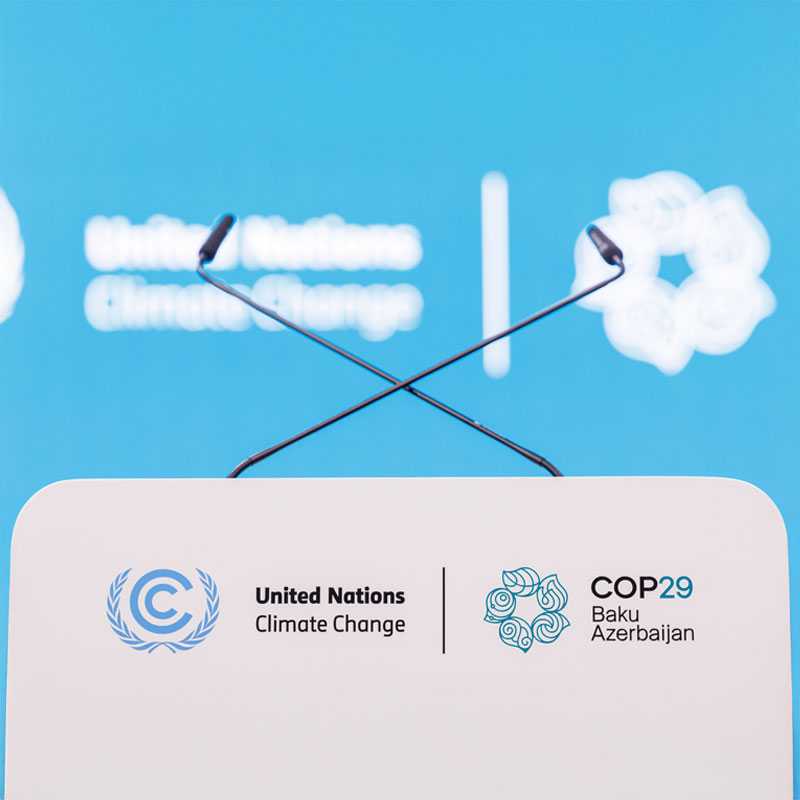

As the world approaches the 29th United Nations Conference of the Parties (COP29), the urgency of addressing climate change has never been greater. Each COP represents a significant opportunity for world leaders, policymakers, businesses and civil society to come together and set the global climate agenda. COP29 will be particularly important, not only because it follows key decisions and discussions from COP28, but because of its unique geopolitical and environmental context.
COP summits are essential not only because they drive global policy decisions, but also because they allow for the collaboration of governments with businesses, NGOs and other stakeholders. With climate change being a global challenge, these meetings are the only forum where multilateral agreements can be reached by all countries in the world, and the outcomes can have universal impacts on national policies and private sector investments.
COP29: Building on COP28
COP29 will be crucial because it will build on the foundation laid by COP28, which took place in the United Arab Emirates. COP28 was marked by intense discussions on transitioning to renewable energy, reducing methane emissions and scaling up climate finance to help developing countries cope with climate impacts. These are critical issues, but they require continuous negotiations and adjustments, which COP29 will need to address.
One of the expected priorities at COP29 will be to lay the ground for the upcoming revision of national and climate goals under the Paris Agreement, known as Nationally Determined Contributions (NDCs). While some progress has been made in advancing the NDCs, many countries’ objectives are still far from the emission reduction targets needed to meet the 1.5°C goal—and many will likely not meet their targets. According to the UN Environment Programme’s 2024 Emissions Gap Report, current NDCs put the world on a path to around 2.7°C of warming by the end of the century—a trajectory that would have devastating consequences for ecosystems, economies and communities worldwide. This will be further complemented by the upcoming Biennale Transparency Reports countries must present by the end of the year, providing a clear snapshot of the state and gaps of our collective climate commitment.
Addressing Shortfalls in Climate Finance
One of the most pressing topics at COP29 will be climate finance. Developed countries committed to providing $100 billion annually to help developing nations mitigate and adapt to climate change by 2025, but this target has yet to be fully met. According to the UN Framework Convention on Climate Change, as of 2023, wealthy nations still fell short of fulfilling their financial pledges to assist poorer countries in addressing the impacts of climate change.
At COP29, developed nations will need to address the mandate to update the $100 billion commitment and to scale up financial support, including that for loss and damage—funding that compensates vulnerable countries for the irreversible impacts of climate change. COP27 in Egypt laid the groundwork for a loss and damage fund, but COP29 must ensure that the new finance goals account for these efforts effectively and comprehensively.
There is also an urgent question on how to increase finance for climate adaptation. As climate impacts like extreme weather events, rising sea levels and biodiversity loss intensify, there is growing recognition that adaptation strategies are just as important as mitigation efforts, something that we are only just seeing become more well known. Adaptation involves making changes to systems and communities to protect them from the unavoidable impacts of climate change.
At COP29, discussions on adaptation will likely focus on scaling up adaptation finance, which remains underfunded despite its necessity. The UN has called for developed nations to increase financial support to help vulnerable countries, particularly those in the Global South, build resilience to climate impacts. The Adaptation Fund will be a central topic in the context of new finance goals discussion, with emphasis on expanding reach and ensuring funds are accessible.
Failing to secure adequate climate finance for mitigation, adaptation and loss and damage will drastically hinder the ability of developing nations to reduce emissions and adapt to the worsening effects of climate change. COP29 will provide a platform for securing new financial commitments that match the escalating costs of climate adaptation and mitigation.
Geopolitical Tensions and the Role of the Private Sector
COP29 will also take place against a backdrop of geopolitical tensions that could influence the negotiations. The multiple wars in various parts of the world, U.S.-China trade relations and other geopolitical conflicts have disrupted energy markets, slowed climate cooperation and threatened global climate finance. COP29 will need to navigate these tensions to ensure that countries remain committed to their climate pledges.
The role of the private sector will also be central to COP29. Businesses have become increasingly important players in global climate action, with many corporations making net-zero pledges and investing in clean energy technologies. However, it’s essential that these corporate commitments translate into real, measurable action. COP29 will offer a platform for businesses to showcase their progress and collaborate with governments on achieving global climate goals.
The private sector, in particular, has a significant role to play in scaling up clean technologies, improving energy efficiency and promoting sustainable practices across industries. Many businesses have already made net-zero pledges, but COP29 will be a critical moment for ensuring these commitments translate into real, measurable action.
Upholding the Global Stocktake Promise
Maintaining the promise to start moving towards an energy transition as a result of the Global Stocktake will also be a key theme at COP29. The global push to move away from fossil fuels towards cleaner energy sources is accelerating, but the pace is still far too slow to meet climate goals. At COP28, several oil and gas companies pledged to decarbonize, but COP29 will need to build on this momentum and push for concrete action on phasing out fossil fuels. This will involve not only increasing the share of renewable energy in the global energy mix but also ensuring that coal, oil and gas are replaced in a just and equitable manner.
The geopolitical dynamics surrounding energy transition cannot and should not be overlooked. The war in Ukraine has disrupted energy markets, forcing many countries to rethink their energy security strategies. At the same time, the race for critical minerals—needed for batteries, electric vehicles and other green technologies—is intensifying. COP29 will need to address the balance between advancing clean energy technologies and ensuring that this transition does not create new dependencies or exacerbate inequalities, especially for developing countries.
These are just a few of the areas that will need to be addressed during COP29. While there is mixed understanding of what can be expected at COP29, it will remain an important conference, because it builds on the momentum from previous COPs and addresses critical gaps in global climate action. With the need to update NDCs, scale up climate finance and drive the energy transition, COP29 presents a crucial opportunity for countries to demonstrate leadership and take the decisive steps needed to avert the worst impacts of climate change. The decisions made at COP29 will shape the trajectory of global climate efforts, making it a key moment for international cooperation, policy innovation and the future of the planet.
Related Articles
Looking Ahead: A 2026 Communications and Leadership Outlook
January 27, 2026


